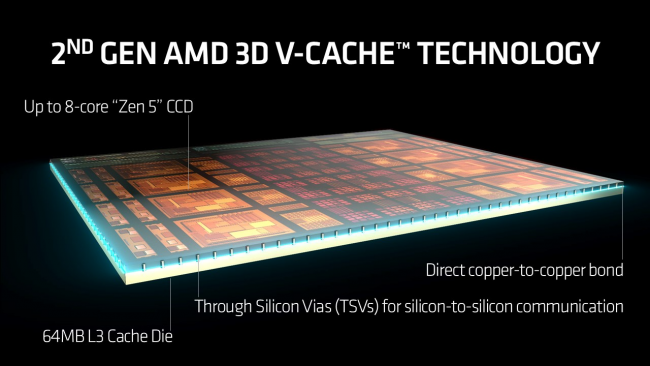CPU Cache vs Clock Speed: What Actually Matters for Gaming

For years, gamers have looked at CPU clock speeds as the ultimate indicator of performance. The higher the GHz, the faster the chip — or so we thought. But as we move into 2025, the story has changed. CPUs like AMD’s Ryzen X3D lineup have proven that cache size, not just frequency, can make or break gaming performance.
So what really matters for gaming today: clock speed or cache?
What Clock Speed Actually Does
Clock speed, measured in gigahertz (GHz), defines how many cycles a CPU can complete per second. In simple terms, a 5.6GHz CPU can process 5.6 billion cycles per second. That speed determines how fast instructions move through the pipeline — things like player inputs, physics, and draw calls.
Higher clock speeds help most in games that rely heavily on single-threaded performance. These are usually titles that involve constant sequential calculations, such as competitive shooters, racing games, or older engines that haven’t been built to scale across many cores.
But here’s the catch: games are becoming more complex, and simply cranking up frequency no longer provides massive performance gains. Power efficiency, thermal limits, and architecture all play just as big a role.
What Cache Does and Why It Matters
The CPU cache acts as ultra-fast memory that stores frequently accessed data close to the cores. Think of it as a “holding area” for the CPU’s most-used instructions and game data, like texture calls, AI routines, or physics calculations.
The more cache a CPU has, the less it needs to fetch data from slower system memory (RAM). This dramatically reduces latency and improves frame consistency, especially in games that rely on rapid data retrieval — open-world games, large simulations, and strategy titles.
AMD’s 3D V-Cache technology is a perfect example. By stacking extra cache on top of the CPU die, chips like the Ryzen 7 7800X3D and Ryzen 9 9950X3D can deliver much smoother frame pacing and higher average FPS in cache-sensitive titles, often outperforming higher-clocked CPUs.
Cache vs Clock Speed in Real Games
To understand how this plays out, let’s look at two hypothetical builds:
Build A: Ryzen 7 7800X3D (5.0GHz boost, 96MB L3 cache)
Build B: Intel Core Ultra 7 265H (5.7GHz boost, 30MB L3 cache)
Even though the Intel CPU runs at a higher frequency, the Ryzen chip can outperform it in games like Baldur’s Gate 3, Cities: Skylines II, and X4 Foundations. That’s because these titles rely heavily on large data sets being accessed quickly — something cache handles more efficiently than raw speed.
On the other hand, in games like Counter-Strike 2 or Fortnite, which are lighter on simulation and depend more on single-thread performance, the Intel CPU’s higher frequency can result in slightly higher peak FPS.
So while clock speed helps with responsiveness and maximum framerate, cache capacity helps with consistency and frame stability — especially at higher resolutions or with complex scenes.
How Cache Impacts Modern Game Engines
Game engines are now designed to handle massive worlds, dense physics calculations, and complex AI systems. When the CPU’s cache can store key assets or simulation data locally, it cuts down memory latency drastically.
This is why you’ll often see reviews mention “1% lows” — the measurement of how stable frame rates remain under load. CPUs with larger caches tend to have better 1% lows, resulting in fewer stutters and smoother gameplay even when overall FPS looks similar.
As developers move toward multi-threaded workloads and larger scene rendering, cache importance continues to grow.
When Clock Speed Still Matters
Clock speed isn’t dead. Fast cores are still vital for games that rely on quick instruction processing and input response. Esports titles, fast shooters, and games with limited CPU scaling still benefit from higher frequencies.
That’s why most high-end gaming CPUs in 2025 strike a balance between cache and speed. The ideal chip is one that offers strong single-core performance and plenty of cache to avoid memory bottlenecks.
How to Choose the Right CPU for Gaming in 2025
- For competitive gaming: A high-frequency CPU like the Ryzen 7 9600X offers excellent response times and peak FPS.
- For simulation and open-world games: A cache-heavy CPU such as the Ryzen 7 7800X3D or Ryzen 9 9950X3D delivers smoother, more stable performance.
- For general gaming and multitasking: A balanced CPU like the Ryzen 7 9700x or Intel Core Ultra 7 gives the best of both worlds.
The choice depends less on “GHz” and more on the kind of games you play and how consistent you want your performance to feel.
Final Thoughts
Clock speed may still look impressive on paper, but cache has quietly become the unsung hero of gaming performance. It affects everything from frame pacing to latency, especially in complex, modern titles.
In 2025, a good gaming CPU is about efficiency, balance, and smart data access. More cache means fewer slowdowns, fewer stutters, and a smoother overall experience — and that’s something every gamer can appreciate.
Tarl @ Gamertech

